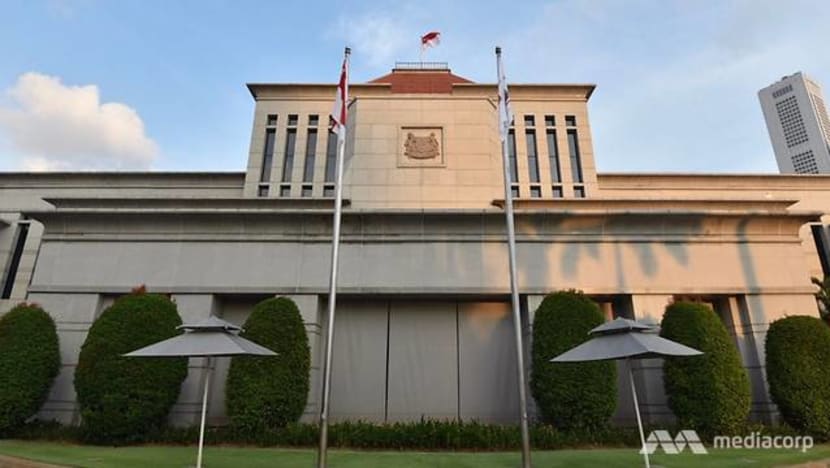WP proposes changes to draft foreign interference law, amendments to be discussed in Parliament
The Workers' Party says it disagrees with the current form Bill, citing the need for greater clarity and transparency.

File photo of Parliament House.
SINGAPORE: The Workers' Party (WP) on Wednesday (Sep 29) proposed several amendments to the proposed law against foreign interference, saying it disagrees with the current form of the Bill.
The party's suggestions include oversight of executive action by the judiciary and a "more precise scoping" of executive powers to "significantly lower the likelihood of abuse of power".
It also called for greater clarity and transparency on the identities of the people and entities that have been subjected to the law.
"While The Workers’ Party believes in the legitimate need to counter malign acts of foreign interference, we disagree with the current form of the Bill in achieving the said objective," it said in a statement.
The Foreign Interference (Countermeasures) Bill was introduced in Parliament on Sep 13. It is aimed at preventing, detecting and disrupting the use of hostile information campaigns by foreign entities intending to interfere in domestic politics.
The Home Affairs Ministry said that the WP's proposals will be discussed in Parliament next week when the Bill is debated.
In a statement on Wednesday night, the ministry noted that the WP "appears not to be objecting to the principles and various aspects" of the Bill. "In fact, they have confirmed they believe in the legitimate need to counter malign acts of foreign interference," said MHA.
Under the draft law, the Home Affairs Minister can issue directions that require a person or Internet intermediary to stop communicating content deemed to be part of a hostile information campaign. If these directions fail, the minister can order Internet service providers to block access to the content.
Like in the Protection From Online Falsehoods and Manipulation Act (POFMA), parties that receive these directions are required to comply regardless of whether they want to appeal. Those convicted of not complying with the directions could face jail time, fines or a combination of both.
Parties that then wish to appeal against these directions can apply to the minister to vary or cancel the direction.
If the minister declines, the party can appeal to a Reviewing Tribunal chaired by a sitting High Court judge and comprising two other people outside the Government. The tribunal can either dismiss the appeal or revoke the minister’s decision.
The Government has proposed that such a tribunal, instead of the courts, hears the appeals because sensitive intelligence with national security implications could be involved.
But Member of Parliament (MP) He Ting Ru (WP-Sengkang) proposed that the High Court, instead of the tribunal, hears such appeals, and that those who are subjected to the directions can apply with the court to get a stay on the directions pending the appeal.
Ms He also suggested that the High Court can order the whole appeal or part of it to be dealt with in camera if it is satisfied that this would be in the interests of justice, public safety or security.
In camera means that the public would not be allowed to attend proceedings.
TIGHTER SCOPING
On the more precise scoping to reduce the likelihood of abuse of power, MP Jamus Lim (WP-Sengkang) proposed that the minister act on "evidence or actionable intelligence" rather than suspicion as worded in the current Bill.
Under the draft law, the minister must suspect or have reason to believe that content has been or is planned to be communicated by or on behalf of a foreign principal; that there is information or material being published in Singapore as a result; and that it is in the public interest before issuing the directions.
Associate Professor Lim also suggested removing words like "likely to" in the Bill, preferring to stick with the more concrete "is" that is already provided in the draft law.
GREATER CLARITY
As for the greater clarity on people or entities subject to the law, MP Leon Perera (WP-Aljunied) proposed that those designated as "politically significant" be listed on a registry provided free-of-charge and easily accessible to the public, along with reasons for the designation.
This is unless the competent authority considers it "not practicable or desirable" to do so on national security grounds, he said.
Under the draft law, a competent authority appointed by the minister can designate people and entities as politically significant if their activities are directed towards a political end, and that it is in the public interest that countermeasures be applied.
Those who fall in this group must report single donations of S$10,000 or more from local and foreign donors, as well as disclose affiliations with foreign entities.
The competent authority can also direct these parties that publish matters on political issues relating to Singapore, to disclose the particulars of any foreign author and/or foreign principal for whom or at whose direction the article or programme is published.
The WP said its MPs will "canvass fuller arguments" at the parliamentary debate on the Bill.
















